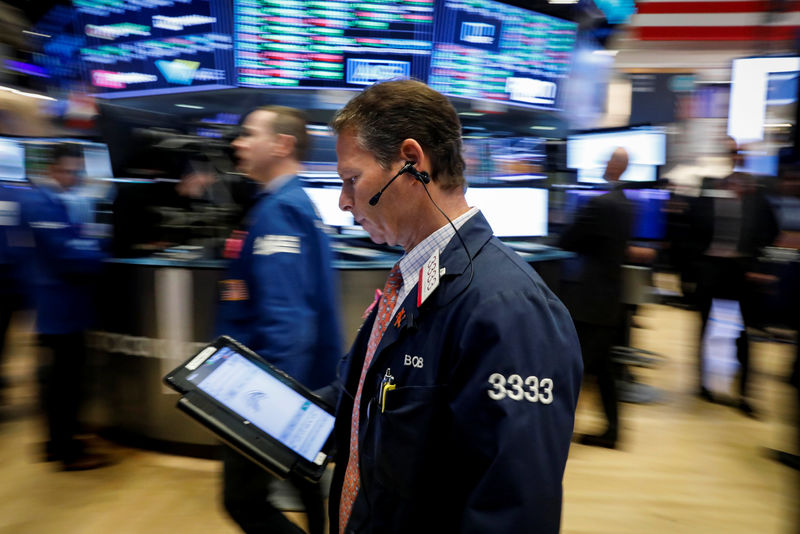By Yasin Ebrahim
Investing.com – Wall Street continued to trade in record territory Tuesday, led by a surge in energy stocks and signs the Covid-19 (coronavirus) outbreak may be reaching a peak.
The S&P 500 rose 0.42%, Nasdaq Composite added 0.70% and the Dow Jones Industrial Average 0.62%.
Energy stocks clawed back some losses from a day earlier, underpinned by a jump in oil prices as investor hopes of deeper OPEC-led production cuts offset weekly U.S. petroleum data showing a larger-than-expected build in crude inventories.
Signs that the Covid-19 outbreak is beginning to peak also supported energy stocks and the broader market.
New infections of the deadly virus in Hubei province, the outbreak’s epicenter, fell for seven days in a row on Tuesday, according to health authorities in China. Although there are doubts about numbers now that China has changed its methodology for counting the virus.
The easing worries over the virus pushed up travel and entertainment stocks, which were the worst hit when fears of contagion threatened to boil over.
Wynn Resorts (NASDAQ:WYNN), Las Vegas Sands (NYSE:LVS) and American Airlines (NASDAQ:AAL) traded higher for the day.
On the earnings front, meanwhile, investors cheered mostly bullish quarterly results.
Shopify (NYSE:SHOP) jumped 12% as its quarterly earnings markedly topped estimates and e-commerce company delivered an upbeat outlook on revenue.
Lyft (NASDAQ:LYFT) slumped 9% after the company said it doesn’t expect to become profitable until the end of 2021. But Molson Coors Brewing (NYSE:TAP) reversed gains, falling 2%, despite quarterly results topping consensus estimates on both the top and bottom lines.
Bed Bath & Beyond (NASDAQ:BBBY), down 20%, kept a lid on consumer discretionary stocks, after it reported a decline in sales in December and January.
Monetary policy was also in focus as Federal Reserve Chairman Jerome Powell testified before the Senate Banking Committee.
Powell did not, however, sway from his narrative a day earlier, reiterating that the central bank's current monetary policy measures remain appropriate as there is "nothing about this economy that is out of kilter or imbalanced."
